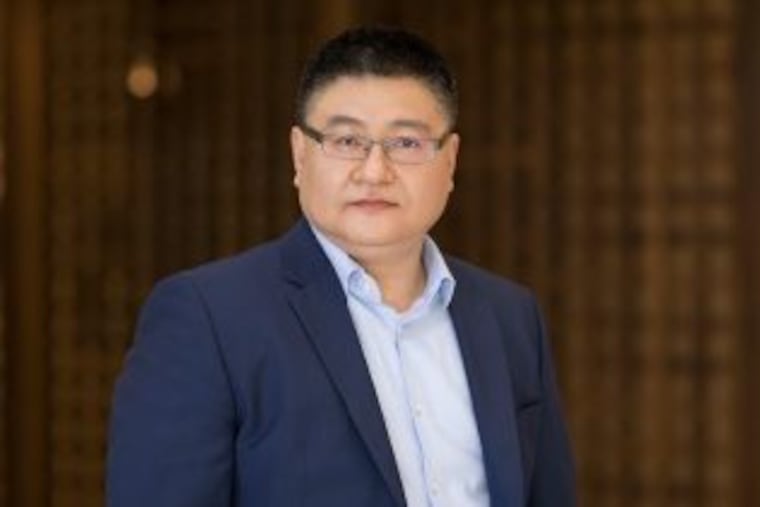U.S. lodges first criminal charges against China investor in insider-trading case
The charges follow FBI and SEC investigations into suspicious China-based investments in a string of U.S. companies while they were takeover targets, including DreamWorks SKG, which Comcast purchased.

A federal grand jury in New York City has filed the first criminal charges in connection with FBI and Securities and Exchange Commission probes of alleged insider trading in a string of U.S. companies by a pair of U.S.-educated investors from China.
Acting U.S. Attorney for New York Joon H. Kim said Benjamin Chow, a Caltech-trained Ph.D. who heads Canyon Bridge Capital Partners, an investment firm based in Palo Alto, Calif., and Beijing, has been indicted on charges of securities fraud and conspiracy.
According to the indictment, in 2016 Chow gave a China-based trader and former colleague inside information and updates about his firm's planned $1.3 billion purchase of Lattice Semiconductor Corp. of Seattle despite having pledged not to talk about it to anyone outside of the buyer and seller and their advisers.
After they talked, the friend bought big blocks of Lattice stock in the expectation it would rise when the deal was announced — in violation of U.S. law barring insider trading, the government says. When the sale plan was announced and the stock zoomed, the friend pocketed profits of more than $5 million at the expense of other investors.
In September of this year, the sale of Lattice, which makes programmable computer circuits, to Chow's Canyon Bridge was stopped by President Trump, who cited national-security interests due to potential military uses of Lattice technology. But by then, Chow's friend had made his millions, according to the indictment.
The charges mirror an SEC civil complaint, filed in February, against Shaohua "Michael" Yin, a China-based trader and Wharton M.B.A. who, the SEC says, collected millions in illegal profits by buying up shares of Lattice with borrowed money after collecting information on Lattice's pending sale from an unnamed friend at Canyon Bridge — the firm Chow heads.
Chow's lawyer, George Canellos, has said Chow denies the allegations and plans to fight the government in court, Alan Auyeng, a spokesman for Canyon Ridge, told me. Yin's lawyers did not return calls.
The civil complaint against Yin does not name Chow, and the Chow criminal complaint doesn't name Yin. Each complaint describes its target contacting an unnamed friend fitting the description of the other defendant, on the same dates and times, followed by similar share purchases. Chow and Yin worked together at Warburg Pincus & Co. in Hong Kong in the mid-2000s.
In his June response to the SEC, Yin denied talking to his friend about Lattice. Instead, his lawyers wrote, they "discussed the semiconductor industry generally." The criminal complaint describes more detailed exchanges between the two, including Chow's claim in September 2016, in a discussion about the likelihood the Obama administration might approve the Lattice sale, that his firm expected to "sign the contract soon." Over the next three weeks, Yin bought 2.2 million Lattice shares.
Besides the illegal trading in Lattice, the SEC complaint says, Yin made "suspicious" trades in at least six other U.S. companies before they announced deals. He scored larger profits buying large blocks of DreamWorks SKG shares with borrowed money before Philadelphia-based Comcast Corp. bought the entertainment/animation studio last year. The SEC says Yin learned DreamWorks was in secret merger talks from another China-based investor.
As with the Lattice case, the China investor giving inside information to Yin did not need to actually buy DreamWorks for Yin's investment to gain millions in value.
According to a document in the SEC civil case, Comcast learned DreamWorks was for sale, enticing Comcast CEO Brian Roberts to make a higher offer, from a lawyer at a firm that represented both Comcast and a Chinese rival. Comcast and the lawyers have not been accused of wrongdoing.
If convicted, Chow faces a maximum of more than 20 years in prison for each of 13 counts of securities fraud, plus five years if he is found guilty of conspiracy.